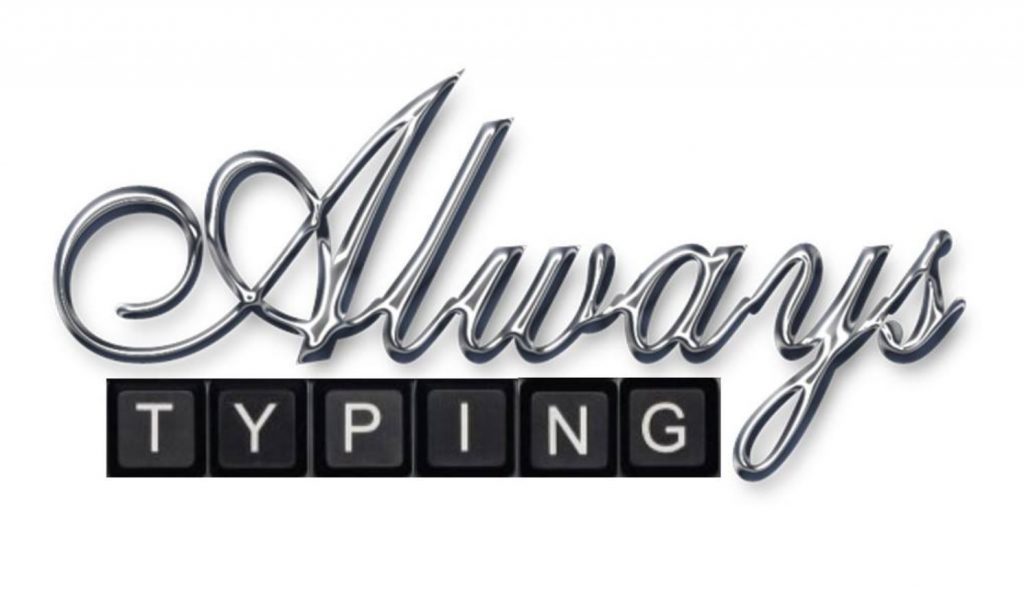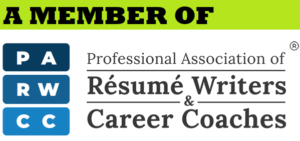Choosing a career path is one of the most significant decisions you’ll ever make. It’s the foundation for your future, yet for many recent graduates and early-career professionals, this choice can be incredibly challenging. You might feel lost, overwhelmed, or unsure about which direction to take. The good news is, you’re not alone. Many people struggle to choose their career path, and it’s okay to feel out of sorts. In this article, we’ll explore why this struggle exists, offer tips to help you overcome it, and guide you on what to do once you find your niche. Understanding the Struggle to Define a Career Path Finding the right career path isn’t always straightforward. You might have been told that you can do anything, but with so many options, choosing one can feel overwhelming. The struggle often stems from a combination of internal and external factors. One of the biggest challenges is the sheer number of options available. With so many potential careers to choose from, it’s easy to feel paralyzed by the decision. Additionally, if you haven’t had much work experience, it can be difficult to know what you’re good at or what you might enjoy. This lack of self-awareness can make the decision even harder. Societal Pressure and Expectations Society, including family, friends, and even social media, can significantly influence your career choices. You might feel pressured to pursue a particular path because it’s considered prestigious or because it’s what your parents want. However, choosing a career based on others’ expectations can lead to dissatisfaction and burnout. The myth of the “perfect job” also adds to the pressure. Many people believe there’s one ideal job out there that’s perfectly suited for them. This belief can make it even harder to make a decision because you’re constantly searching for that elusive perfect fit. The Fear of Making the Wrong Choice Fear is another major factor that holds people back from choosing a career path. You might worry about making the wrong choice and ending up in a job you hate. This fear can lead to analysis paralysis, where you overthink every option and struggle to make a decision. Remember, no choice is set in stone. It’s okay to change direction if something doesn’t work out. The Role of Self-Discovery in Career Choice Before you can choose a career, you need to know yourself. Self-discovery is a critical part of defining your career path. It involves understanding your interests, strengths, and values. What are you passionate about? What do you enjoy doing in your free time? What are your natural talents? Personality tests, like the Myers-Briggs Type Indicator or the Holland Code, can help you gain insight into your preferences and strengths. Reflecting on past experiences and feedback from others can also provide valuable clues about what career might suit you best. The Impact of Limited Experience When you’re just starting out, you might not have a lot of work experience to guide your career choice. This lack of experience can limit your understanding of different industries and roles, making it harder to choose a path. One way to overcome this is by gaining experience through internships, part-time jobs, or volunteer work. These opportunities allow you to explore different fields, develop new skills, and get a feel for what you might like or dislike. The more you experience, the easier it becomes to define your career path. The Problem with Following Trends It’s easy to get caught up in following trends, especially when everyone seems to be pursuing the same “hot” careers. However, just because a career is popular doesn’t mean it’s right for you. Chasing trends can lead to dissatisfaction, especially if you choose a career solely for its perceived prestige or earning potential. It’s important to consider what will make you happy and fulfilled in the long term, rather than just what’s trendy right now. A career that aligns with your values and interests is more likely to bring you long-term satisfaction. Why Career Path Choices Aren’t Permanent One of the most liberating realizations is that your career choice doesn’t have to be permanent. The job market is constantly evolving, and many people change careers multiple times throughout their lives. What matters most is gaining transferable skills and staying adaptable. If you start in one field and later realize it’s not the right fit, it’s okay to pivot. Many skills, like communication, problem-solving, and teamwork, are valuable in a wide range of careers. Embracing change and being open to new opportunities can lead to a more fulfilling career. Steps to Overcome the Struggle If you’re struggling to define your career path, there are several steps you can take to gain clarity. Self-Reflection and Journaling: Take time to reflect on your interests, strengths, and values. Journaling can help you organize your thoughts and identify patterns in what you enjoy doing. Seek Mentorship and Advice: Talk to people who are already working in fields you’re interested in. They can offer valuable insights and advice based on their experiences. Take Career Assessments: Consider taking career assessments or personality tests to gain a better understanding of your strengths and potential career matches. Exploring Career Options Once you’ve gained some self-awareness, the next step is to explore different career options. Start by researching industries and roles that interest you. Look into the day-to-day responsibilities, required skills, and potential career growth. Conducting informational interviews is another excellent way to learn about different careers. Reach out to professionals in your network or on LinkedIn and ask if they’d be willing to share their experiences. These conversations can provide valuable insights that you won’t find in a job description. Building Experience While Deciding While you’re still figuring out your career path, it’s important to gain experience. Internships, part-time jobs, and volunteering are all great ways to build your resume and develop new skills. These experiences can also help you determine whether a particular field is right for you. Gaining experience doesn’t just make you more marketable
How to Get a Hiring Manager’s Attention with a Letter of Interest
Almost everyone, at some point in their career, will have a goal to work at a particular company. Maybe it’s less than a goal and more like a dream. Either way, there’s a company that you’d love to work for, but they never seem to be hiring. How do you get your foot in the door of your dream company if they have no job openings? The best way is to send a letter of interest. This letter will get your name in front of a would-be hiring manager and showcase a few of your skills so they know what value you bring. There is a particular way to write a letter of interest. Keep reading to learn how to get a hiring manager’s attention with a letter of interest. What is the purpose of a letter of interest? A letter of interest conveys that you are interested in working for a company. It highlights some of your skills and accomplishments and illustrates the advantages a company would gain if you were a part of their team. Recruiting managers appreciate it when potential candidates show initiative. A letter of interest is a marketing technique akin to cold calling. Keep it short, yet enlightening as it is likely hiring managers and recruiters are unlikely to read anything that goes on and on. This isn’t the time to list everything you’ve ever achieved. It’s just a glimpse into your career history. Since everything you send a company should have a call to action, use the letter of interest to request a meeting. This meeting could turn out to be an interview or it could be a short get-to-know-each-other opportunity. What should be included in a letter of interest? When writing a letter of interest for a job, it is essential to express why the company interests you. Showcase your talent and incorporate an example of how your talent effectively improved an aspect of business for a previous employer. The goal is to use your letter of interest to pique the hiring manager’s interest in you and should contain the following: Introduction: Begin by introducing yourself and explaining why you are interested in the company or organization. Purpose: Clearly state the purpose of the letter, such as inquiring about job opportunities, requesting an informational interview, or expressing your interest in a particular field. Background: Provide a brief summary of your background, including your relevant education, work experience, and skills. Value: Explain how you can add value to the company or organization. Highlight your achievements and successes and how they can be relevant to the company’s needs. Connection: If possible, establish a connection between your experience and the company’s mission or values. Call-to-Action: End the letter by stating what you would like to happen next. This could be a request for an informational interview, a request to be considered for future job openings, or simply a request for further communication. Contact Information: Include your full name, email address, phone number, and any other relevant contact information, like links to online portfolios. How to write a letter of interest Since your letter is meant to get the attention of the hiring manager, remember to keep it concise, professional, and tailored to the company you are interested in using these tips: Use a specific contact person When possible, you want to address a human being using their name. Look the company up on LinkedIn or Glassdoor to try to find out who the manager is and write the letter addressed to that person. However, if you are unable to find a specific person, you can use the greeting, “Dear Hiring Manager.” Research Make sure to apprise yourself with relevant details about the company. Your mission is to find out what type of employee the company looks for in a candidate, then exhibit those qualifications within your letter of interest. Review company social media accounts for ideas about the company’s culture from their posts. Research their job listings for particulars in their requirements. Introduce yourself Explain what intrigued you about the company and why you’ve reached out to the recruiting manager. Describe your relevant experience, skills, and interests that align with the company’s mission or goals. Be specific and use examples to demonstrate your qualifications. Demonstrate value What value do you bring to the table? This is where you display your capabilities. If you were instrumental in elevating any gains or diminishing the loss for a past company, include that detail. Capture the hiring manager’s attention by showing them how you can help them achieve goals. The Closing You want to close the letter with a request. Inform the reader that you are interested in an informational interview. This will give you a chance to meet with the hiring manager and discuss more details about the company. Then close with a professional tone and include your contact information. Review the letter Before sending your letter, review it for grammar, spelling, and clarity. You’d be surprised how many letters reach hiring managers with simple spelling mistakes. Utilize robust and concise language and make sure there are no misspellings. Example letter [Your Name] [Your Address] [City, State ZIP Code] [Your Email] [Your Phone Number] Jan 1, 2023 [Recipient’s Name] [Company Name] [Address] [City, State ZIP Code] Dear John Smith, I recently read an article in Writer’s Daily that highlighted your social media expansion. When the company’s Instagram reached 500,000 followers last month, I knew I wanted to be part of the team that brought your company’s readership to 1 million followers. I am confident that I would bring immediate value to your team and would love to find out how to become a member. I have 7 years of experience working in digital promotions and would bring a track record of social media management to your expansion team. Recently, I was involved in a massive project where I was instrumental in increasing social media engagement by 65%. Additionally, I improved online sales revenue by 45%.
The Best Subject Lines to Use When Emailing Your Resume
The jobseeker pool is vast, and the average hiring manager only spends around 60 seconds reviewing a resume before they decide to read it. Are you currently trekking through the job market? Then, you are keenly aware that most of today’s interviews are landed using an online medium. If you plan to email your resume, you need a subject line that will grab the recruiter’s or hiring manager’s attention quickly. The last thing any job candidate would want is to have their resume sitting in an inbox unread because the recruiter didn’t even bother to open it. This is why it is important to be aware of the best subject lines to use when emailing your resume. Fortunately, there are a few guidelines you can follow so your email will stand out. Let’s review the best email subject lines to use to help your resume get distinguished from the rest. Guidelines for the best email subject line Maybe you’re asking yourself what is so important about a subject line when your resume is full of the vital information that recruiters need to surmise your qualifications. The subject line for resume email attachments is the first thing a recruiter is going to notice amongst the data lingering in their inbox. Therefore it needs to make a lasting impression. It’s your introduction, your chance to capture the reader’s attention. It’s also how to avoid your email resume becoming another remnant in the spam folder. Be Professional Remember, you’re applying for a job. Recruiters won’t respond to emails with subject lines that are too familiar. While being friendly isn’t necessarily a bad thing, using laid-back language instead of sounding like a professional is not a good idea. It will negatively impact the chances of getting your email read, much less acquiring the interview you desire. You also want to keep a professional email address. It’s also a part of the introduction process. Recruiters are more likely to assume that “jennybaxter” is more professional than someone using an email that starts with “dogowner99”. It’s great that you love dogs. But, it won’t help you come across as a qualified candidate. If you don’t already have a professional email, go ahead and make a new one. There are plenty of free email accounts out there, like Gmail for instance. Just keep it simple. First name and last name or initial and last name using whichever email platform you choose. You could also include a nod to your career such as “jbaxterwriter” as an efficient choice for career purposes. Keep it Brief Make sure to keep your subject line short and to the point. There’s only a certain amount of characters allowed, typically around 50 or 60 per most email services. If you’ve made your subject line too long, then the intended receiver won’t even be able to view it. Remember the goal is to catch their eye quickly. Did you know that over a billion and a half people check their email on a mobile device? Different devices can limit even more of the viewing data available to mobile users. This means you want to capture the recruiter’s attention within the first 20 characters or so. List the most crucial details right away, so your subject line will hold their gaze and encourage them to continue with the rest of your email resume. Try to avoid using any soft skill keywords in the subject line, remember recruiters don’t want to feel like they’re being peddled a new product. They want candid facts that are going to help them make an informed decision about a potential candidate. The easier you make the process for hiring managers, the faster your resume will come across their radar. Follow directions It’s always important to check if any job openings that you are applying for have any specific requirements that are listed when submitting a resume. Details matter. Some employment opportunities may require certain attributes regarding the open position that should be listed in the subject line. Keep in mind, specifics are often employed to help filter emails to the proper channels. In particular, things such as position name, job location, position ID#, and candidate name as applicable. Here is an example of a subject line with those requirements: “Sound Engineer, Nashville, Job ID# 8321, Jane Doe.” Additionally, you may be required to enclose certain files within your email aside from your resume, such as a cover letter and portfolio. Referral Referrals can help candidates establish a sense of trust with a recruiter. If someone has referred you to the company, make sure to include their name in the subject line of your email. Here is an example of a subject line that includes a job referral: “Referral from Robert Frost: John Smith, Resume for Consumer Relations Expert.” Employee referral programs will offer an incentive to the employee for referring candidates to open positions within the company. This will help solidify your credibility with the recruiter. Proofread Make certain to proofread and edit your email subject line before sending it through. You don’t want a misplaced comma, forgotten period, or random typo to prevent your email from being accessed. Keep that first impression on a positive note! In Closing The subject line of your email is your chance to fascinate the job recruiter in less than a few seconds. Keep it short, but always professional. Make sure to follow any instructions listed in the job opening, so that you can secure your future career! If you have any reservations about your current resume retaining the recruiter’s interest once they’ve moved past your subject line, Always Typing Resumes has got your back! Contact Us Today
3 Ways to Further Your Career Path Through Job Networking
85% of jobs are discovered through job networking. Finding a new career path can become rather frustrating when you’ve submitted resume after resume, and feel like you’re not finding the job opportunity that you’re looking for. The good news is that by leveraging your professional and personal network, you can find opportunities. It may be that you find something with a contact you’ve already made, or you may have to make new connections, but with the world of social media and other things like career fairs, you’ll be able to build up a network quickly. Let’s explore 3 ways to further your career through networking. Social Media Today’s society has grown especially committed to utilizing social media to further goals. Companies use social media to grow their brands, recruiters use it to find job seekers, and hiring managers rely on social sites to learn more about potential interviewees. It’s important to remember that your brand is YOU. Social media connects people from across the street to across the globe. Use it to grow the brand of YOU. Aside from the usual suspects, such as Facebook, Instagram, and Twitter, there are two other social media platforms that are integral to networking for job seekers–LinkedIn and TikTok. LinkedIn LinkedIn is the largest, direct social media platform primarily used in networking for careers. From your LinkedIn profile to the connections you make, this website offers you multiple avenues for leveraging your network all within one online global, one-stop shop. Keep up the momentum and stay active on the site. Activity equals profile views. More profile views can increase your connections and your job possibilities. Connect with alumni or previous coworkers, and grow your LinkedIn following. Make sure to offer recommendations and endorsements to others in your network and ask that they endorse or recommend you, as well. Again, you are using social media to advertise yourself. So, it’s critical to show that you are just as capable of giving as you are of receiving when it comes to those connections. TikTok TikTok has over 1 billion users worldwide. It is a huge resource for networking. While making random videos on an online platform may seem overwhelming, it is extremely rewarding for your potential networking pool. Knowledge and creativity can attract multiple resources, which will increase your employment connections. Influencers are a major part of social media platforms. Think of yourself as an influencer, and influence your audience to invest in you. That audience includes companies and headhunters looking for their next employable asset. Be the asset. Utilize your TikTok as a resume, and make it work for you. Personal Network Your personal network is an avenue to a possible new career opportunity. There are simple ways you can manage that avenue. Communicate Keep in touch. No, this doesn’t have to be daily communication. But do reach out, especially when someone in your circle may hold a lead to your future career. If you’re introverted or not a huge people person, that’s okay; use digital communication. Be genuine. When communicating with your personal network, make sure to do something thoughtful, like sharing an article they may enjoy or a meme on occasion. So that when you inquire about information at a later date, it doesn’t seem intrusive. Community Service There is a reason why colleges and employers want to know about what types of community service you have provided. It shows initiative and it shows selflessness. If you’re willing to give freely, you are likely just as willing to work hard to earn that paycheck. Volunteering with the people in your personal network shows that you are willing to work to help others without expectation. Giving is important. Volunteer opportunities also help to forge connections with new people to add to your existing personal network. Show gratitude Sometimes, the smallest things can mean the most, and impressions matter. People are more likely to refer to somebody in their personal network if they value them as a kind individual. Aside from it just being good manners, saying “Thank you” can go a long way. Gratitude can be shown with acts of kindness. When it comes to your personal network, impressions are, in fact, personal. Career Fairs & Events Career Fairs help connect employers to potential employees, and are a great way to leverage potential contacts. Make sure to have your resume on hand and dress to impress. Consider also noting employers that are hiring which may interest someone in your personal network. Career events such as conferences that specialize in your skills are a great place to forge new connections. It’s always beneficial to keep some copies of your resume on hand when attending any of these types of events. One of your new connections may be looking for someone just like you! Network with your resume in hand As you’re on the path to growing your job networking skills, it’s imperative that your resume is ready and properly targeted to your career goals! If you’re not sure whether your resume will attract the job offers you really want, don’t worry; we are here to help. We will look over your resume for you–for free. Contact Us Today
Tips On How to Organize Your Job Search
Did you know only 30% of job seekers are actively looking for new positions? You may not be in a rush to find a job, but being disorganized about your job search can extend even the laxest timelines. Applying to jobs continuously can be time-consuming and confusing. Did you apply for that job already? When did you apply to that company last? What information do I still need to do? That’s why you need to know how to organize your job search. Keep reading and we’ll show you how. Benefits of Organizing Your Job Search Action Plan The average job search lasts about five months. If you apply to several jobs a day for at least five days a week over five months…you have a lot of applications to keep track of. This is where being organized can be extremely helpful. Some of the benefits of organizing your job search include: Maximize Time and Efficiency Have you ever been filling out an extremely long application only to find out when you try to submit that you’ve already applied for this role? By organizing the search, you maximize your time and efficiency. You no longer waste time trying to figure out if or when you applied and can streamline the entire process. Learn From Mistakes Answering the pre-screening questions can sometimes be a lesson. If you have an organized plan for the job search, you can keep track of those answers too. Then you can figure out how to make them better for the next application. Strong Interviews Being organized will definitely strengthen your interview capabilities. You’ll have each application documented, so you can easily check back when you get an interview request and refresh your memory. This is the first step in researching the company and will demonstrate that you are excited for the opportunity. How to Organize Your Job Search To begin, you can use whatever tools or supplies you’d like to organize the job search. Maybe you’d prefer to use a pen and paper over a spreadsheet. Whatever works for you is going to be the best option, because you’ll be more likely to stick with it. Now, for the organization tips: #1: Update Your Resume The first thing you want to do is update your resume. You can’t have a streamlined and efficient job search if you are constantly looking for an updated resume. Or if you have to continuously go add information you forgot to include. Although, you do need to remember to tailor your resume to different jobs to get through the Applicant Tracking System. Once you are very clear on what you want to target, then you can update. Be sure you gather any recent information that is missing, such as training or certifications. If you are overwhelmed by the thought of doing this, we can help! Learn more about our resume services and see real client resume samples here. #2: Be Clear On the Basics You want to define the types of jobs you want to apply for and the industry. If you are interested in several, that’s okay! But by breaking it down to a specific job type, you make sure you have a focused job search. This will go a long way in achieving success. #3: Track Progress Be sure to track your progress throughout the job search. Whether you create a paper sheet or use an online version, you want to include the following information about each application: Ensuring you have this information for every application will help you to avoid costly mistakes. There are a lot of free project management tools that would be great for managing this, such as Asana. #4: Create a Schedule It’s easy to get caught up in the job search and spend all your time applying for roles. While it’s good you want to apply to as many as possible, it’s important you don’t overdo it and burn out. If the job search lasts for several months, that could lead to discouragement quickly. So, set a plan for your job search. Start by creating a goal for the number of applications you’ll send out daily (3-5) and determine how many days a week you’ll do this. Then follow the schedule! #5: Use a Checklist You want to make sure you include all relevant information before you submit an application. You also want to make sure you have everything ready to go before beginning the job search Creating checklists ensures you don’t miss a step. It’s also a way to increase your productivity and manage your time more effectively. #6: Expand Your Network Your job search is an excellent time to build your network. When searching for jobs, you can identify key people in the company or industry to connect with. This will help you out in the long run. Many job opportunities come from a referral, so networking is an invaluable tool. Complete #1 On Your Job Search Game Plan Now you know how to organize your job search! The first step is to update your resume and you are in the right place. Always Typing Resumes has the expertise you need to develop a professional resume that passes through ATS software and captures the attention of recruiters. Contact Us Today
How to Create a List of Target Jobs and Companies for Your Job Search
Did you know the average job search takes at least five months? You can keep your efforts focused and organized by defining your target jobs and companies. The job search doesn’t have to be as painful as some make it. In fact, if your job search feels like a full-time job, you’re doing it wrong. Below, you’ll learn how to create a targeted career list so you know exactly what to apply for and which companies you want to work with. Benefits of Creating a Targeted Career List Oftentimes, job seekers are distressed after being laid off or terminated, so organizing the job search is the last thing on their minds. Some have been searching for so long that they get discouraged and lose motivation. While both of these situations are understandable, it’s important you don’t let these factors impact your job search. With a little planning and organization, you can make sure your time is spent wisely. Other benefits of creating a list of target jobs and companies include: How to Create a List of Target Jobs and Companies One look at Indeed or LinkedIn and the millions of companies listed will leave the most organized person overwhelmed. So, don’t worry. It is much easier than that. We’ll outline how to create a list below: Identify Companies With Job Opportunities in Your Area If you want to work at a company with an on-site or hybrid working model, you need to start by identifying potential companies in your geographic area. You can search for companies in the area on Google or type in your zip code on one of the job search sites to get an extensive list. If you are looking for a remote opportunity, then the job search pool just became an ocean. The possibilities are endless for remote workers. That’s why the following points are critical for remote job seekers to streamline their job search. It’s okay if the list seems very long at first. You will eventually narrow it down as you research companies and speak to your network. Leverage Your Network Your network is a tool that is likely underused. When you consider all of the people you know from your job (coworkers, bosses, vendors, customers), you have the entire world at your disposal. Many people know about jobs that will be open before they are publicly announced, meaning you could be ahead of the competition. So, speak to your network. Put your feelers out and let those you are closest to know that you are looking. Not only can this help you to find target jobs, but it can also be an asset if you do apply to these jobs. You have someone on the inside who can vouch for you! While you’re at it, you could actively work to expand your network during your job search. It’s a great time to forge new relationships that can help you advance your career. Review Current Industry Contacts If you don’t have a non-compete agreement and are looking for positions in your current industry, your contacts are a great resource. These contacts can range from vendors and suppliers to customers. Your customers have worked with you and know what an asset you are to an organization. If you have a strong relationship with your customers, you should ask them to let you know of any job opportunities. Talk to Current or Previous Coworkers Your direct coworkers know what kind of worker you are and are likely in the same types of roles you want to apply for. And those coworkers that you have a solid relationship with can put in a few positive words for you to the hiring manager. Target Careers Based On Interests and Passions If you want to break your career list down even further, you should look at the companies that fuel your interests and passions. No one wants to work at a job that they dread each day. So, look at what intrigues you. What kind of roles will keep you on your toes and excited to go to work each day? Those are the companies you want to apply to. Search LinkedIn LinkedIn is one of the best tools for job seekers. The platform allows you to research companies, apply for jobs, connect with your network, and more. Once you have a list of potential companies, you should head to LinkedIn to discover more about them. You can learn the company’s size, see recent news, read articles from thought leaders, and view available positions. Don’t Forget Company Websites As you can imagine, there is a wealth of information on company websites. If you are one of the few who know exactly which company or company type you want to work for, take a gander at their site. It’s always better to apply for roles directly with the company when possible. While you’re there, check out what they have going on and try to find out who the hiring managers are. Also, look at any team website pages they have to see if there are referral programs. If so, you can reach out to staff members on LinkedIn to talk to them about your desire to work at the company and see if they’ll refer you. Often those referrals get the employees some type of bonus. So, you’re not reaching for the stars in asking. Protect yourself Don’t allow desperation for a job to guide your decisions when making your job and company target lists. If the company has bad reviews from employees (check out Glassdoor) or a lot of customer complaints (look at their Better Business Bureau), it’s a good idea to mark them off your list. You don’t want to get stuck somewhere you hate. Prepare Your Resume for Your Job Search Now you know how to create a list of target jobs and companies. Your job search will be more organized and go much more smoothly with this strategy. Before you start your search, have you








